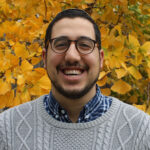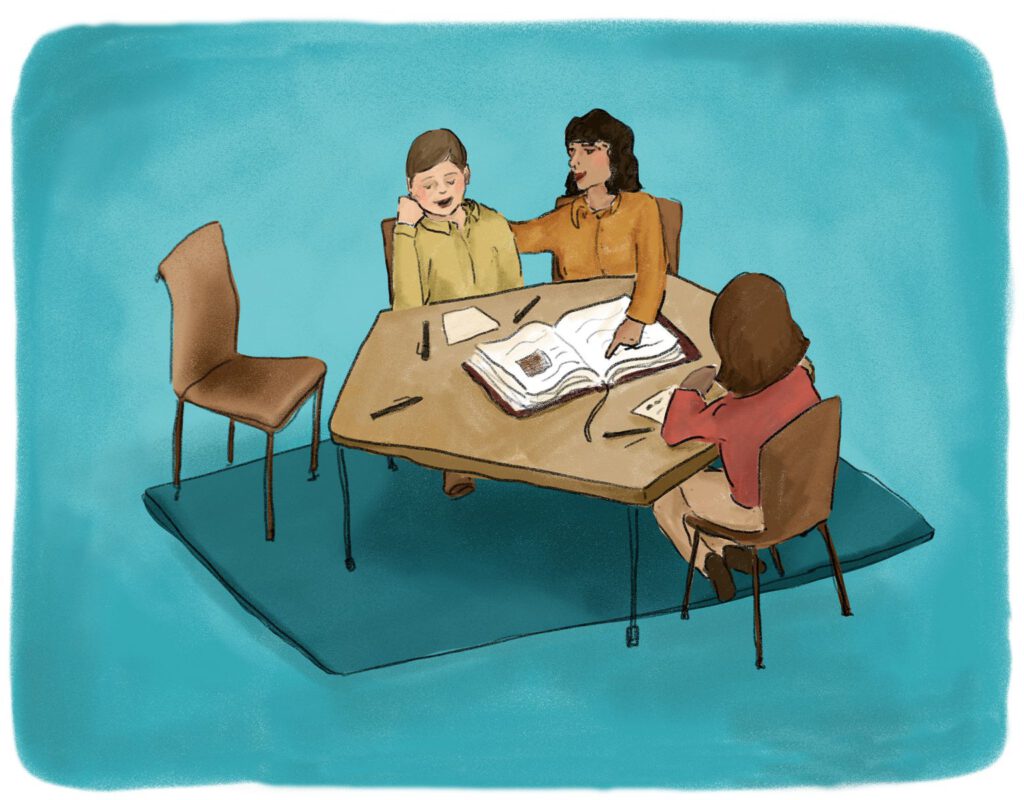Learning that leads to love is a pedagogy that utilizes educational experiences to cultivate love between students in a Jewish classroom. A teaching approach that is rooted in LeSHA is founded on the belief that loving relationships between learners is a primary vehicle for deepening the acquisition of Torah. Similarly, this teaching approach posits that the act of acquisition of Torah was designed primarily to cultivate loving relationships between all members of Am Yisrael regardless of their backgrounds, practices, or beliefs. The purpose of this pedagogy is to see the classroom and Torah learning as a laboratory for Ahavat Yisrael outside of the classroom. This pedagogy seeks to decrease strife, hatred, and apathy and to increase love, empathy, and knowledge of the other within Am Yisrael. This work is timely, as educators are seeking tools, language, and frameworks to cultivate deeper understandings between diverse groups of Jewish individuals. The Jewish educational world is filled with wonderful tools that have been adopted from the secular world of diversity, equity, and inclusion. However, there is an approach within the Jewish tradition that sees the fulfillment of the mitzvah of Ahavat Yisrael as specifically focused on cultivating love between radically different types of Jews through the study of Torah.
LeSha: Lemida Sh’Goreret Ahavah: Learning That Leads to Love

Ronald C. Wornick Jewish Day School Foster City, CA

Adam Eilath.mp3
More PEDAGOGIES RESOURCES
A Pedagogy of the 48: Connecting Pirkei Avot, LIfe, and Learning
Dr. Gila Silverman
Director of Jewish Lifelong Learning
Siegel Lifelong Learning, Case Western Reserve University
This pedagogy invites participants to consider how the 48 different ways of “acquiring Torah” resonates with them
Access ResourceL’Shem Yichud: A Pedagogy For the Sake of Integration
Rabbi Jesse Paikin
Executive Director, Base
L’shem Yichud: For the Sake of Integration is a pedagogy based on an ancient practice of intention setting.
Access ResourceMachloket-i: A Personal, Professional Development Program
Edward Magiste
Educator
The Temple Tifereth Israel
Designed as a professional development strategy, this pedagogy of Machloket targets veteran educators asking to develop their teaching and ideas
Access ResourceLoving Goodness: A Pedagogy through Individuality and Belonging
Charles Herman
Former Executive Director & Founder
The Nesiya Institute
The pedagogy of Loving Goodness explores the tension between self-love and the love of the other
Access ResourceThe Pedagogy of Argument
Robbie Gringras
Co-Founder and Co-Director
For the Sake of Argument
The Pedagogy of Argument seeks to develop learners who are passionate about debates
Access ResourcePedagogy of Kinyan Torah: Helping Students Develop Their Own Interpretations of Torah
Ilana Gleicher Bloom
Founder of Mensch Academy at Mishkan Chicago,
Doctoral Candidate in Jewish Education, Coordinator of Pardes Experiential Educators Program
The pedagogy of Kinyan Torah helps educators support all learners to find their own unique Torah within themselves.
Access Resource